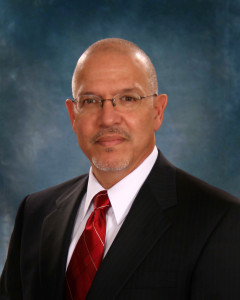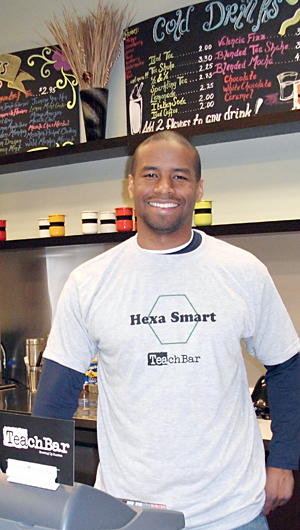Educators Work to Overcome Obstacles to Student Success
Jan 24, 2014
Posted in Education/Schools/Youth
By Ken A. Epstein
Oakland needs a “racially, ethnically and linguistically diverse teaching force that reflects” the students who attend the city’s schools, said Dr. Kimberly Mayfield Lynch, speaking on the “State of Education: Our Work to Increase Successful Outcomes” at Tuesday’s meeting of Black Elected Officials and Faith Based Leaders of the East Bay.

This is the goal – helping dedicated local college graduates overcome the obstacles to becoming teachers – that is being performed by Teach Tomorrow in Oakland, developed under Mayor Dellums’ administration by a number of community members and educators, including Dr. Mayfield, who is chair of the Education Department at Holy Names University.

Besides Dr. Mayfield, speakers at the community breakfast forum, held at Geoffrey’s Inner Circle in downtown Oakland, included Ben Wanzo, owner of TeachBar; Dr. Jose Ortiz, chancellor of the Peralta Community College District; and Robert Morris, education futurist.
Linda Handy, member of the Peralta College Board, moderated the panel.
According to Mayfield, Teach Tomorrow in Oakland is designed is to bring new teachers into Oakland schools who are from Oakland, understand local reality and local students – and make a five-year commitment to work in the city.
“This creates stability for students at their school sites, eliminating the revolving door at the schools,” where teachers typically change every two years, she said, adding the Oakland school district typically hires 2,000 teachers a year.
Dr. Ortiz of Peralta Colleges talked about the need to provide more support for students at community colleges.
Currently, three of 10 African American students and four out of 10 Latino students complete their community college studies. “This is a situation that is pervasive around the state,” he said.
The state and federal governments are stepping up the funding and requirements on “community colleges to supply more
support to our students, counseling and tutoring,” said Ortiz.
“We have to help our student t get into and out of the colleges,” he said.
In response to a question about online courses, Ortiz replied: “Online education is not the panacea that people think it is. It has an 80 percent dropout rate,” he said.
“Online education has been struggling. It has a ways to go. It seems like with the challenges of today, our students need a personal touch,” said Ortiz.
“ We have a lot to do at Peralta, but we know the success of our students is in the classroom.”
Wanzo of TeachBar, who has a degree in mathematics from UC Berkeley and an MBA from Stanford, emphasized that his program helps students understand math and science, sometimes “going back and backfilling skills” they may have missed. “We help them fill in the gaps,” he said.

Morris, who describes himself as an education futurist, said this country is “addicted to a system of tenure, not performance.” We have to design an education system that business people help create, which will produce the creative talent that businesses need.
We must understand, he said, “The next product will come from something that a 16-year-old invented in his garage.”